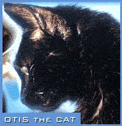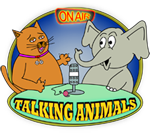Cathy Unruh—a co-founder of MEOW Now (the acronym stands for Managing & Ending Overpopulation Wisely), which is devoted to helping reduce the community cat population in Pinellas County—addresses the impetus for Unruh and her co-founders launching, in 2014, an organization with such a specialized focus.  Unruh notes that, employing a long-trusted formula devised by Best Friends Animal Society, there’s a staggering number of community cats in Pinellas County that need to be spayed or neutered, and the daunting task of MEOW Now handling that, which is
Unruh notes that, employing a long-trusted formula devised by Best Friends Animal Society, there’s a staggering number of community cats in Pinellas County that need to be spayed or neutered, and the daunting task of MEOW Now handling that, which is  primarily done by way of TNVR (Trap, Neuter, Vaccinate, Return). She mentions the organizations that MEOW Now is affiliated with, including Friends of Strays, Humane Society Pinellas, and Humane Society of Tampa Bay, chiefly in providing the community cats they trap with spay/neuter services. Unruh outlines how, exactly, TNVR works, walking us through the process of what MEOW Now volunteers do in that regard—bringing the cat to one of those affiliated organizations—then returning the animal to the colony it was plucked from. She speaks to how MEOW Now is funded (strictly donations, at the moment), and talks openly about the crisis that the organization experienced recently, that threatened its very existence, noting that she and her co-founders (who had retired or otherwise reduced its involvement) returned more directly to steer it back on track. I acknowledge that a primary reason for conducting this interview now is that MEOW Now has been enormously transparent about its struggles—and its plan to turn things around, notably including two unvarnished, detailed posts on its website. Unruh concurs with that assessment, and expresses great optimism about MEOW Now’s future. (https://meownowfl.org, https://www.facebook.com/MEOW-Now-621035224645282/)
primarily done by way of TNVR (Trap, Neuter, Vaccinate, Return). She mentions the organizations that MEOW Now is affiliated with, including Friends of Strays, Humane Society Pinellas, and Humane Society of Tampa Bay, chiefly in providing the community cats they trap with spay/neuter services. Unruh outlines how, exactly, TNVR works, walking us through the process of what MEOW Now volunteers do in that regard—bringing the cat to one of those affiliated organizations—then returning the animal to the colony it was plucked from. She speaks to how MEOW Now is funded (strictly donations, at the moment), and talks openly about the crisis that the organization experienced recently, that threatened its very existence, noting that she and her co-founders (who had retired or otherwise reduced its involvement) returned more directly to steer it back on track. I acknowledge that a primary reason for conducting this interview now is that MEOW Now has been enormously transparent about its struggles—and its plan to turn things around, notably including two unvarnished, detailed posts on its website. Unruh concurs with that assessment, and expresses great optimism about MEOW Now’s future. (https://meownowfl.org, https://www.facebook.com/MEOW-Now-621035224645282/)
 ALSO: I spoke with Michael Lloret, a wildlife biologist and crocodile specialist affiliated with Florida Power and Light (FPL) who’s a key member of a team that nurtures and studies American crocodile hatchlings that are born and at least initially live near FPL’s Turkey Point Nuclear Generating Station—in other words, a nuclear power plant—in Homestead, Florida. Lloret explains that the crocs are drawn to south Florida for the warmer temperatures (versus more northern parts of the state), and what he and his colleagues do with the hatchlings, including microchip them, partly to monitor their movements. Lloret recalls one croc had traveled as far as Tampa, which is unusual, and notes the animal would’ve need to move south at some point to avoid a problem in an area that’s cooler than the Homestead headquarters. Lloret says the data they collect is then made available to an array of scientists and other who study crocodiles.
ALSO: I spoke with Michael Lloret, a wildlife biologist and crocodile specialist affiliated with Florida Power and Light (FPL) who’s a key member of a team that nurtures and studies American crocodile hatchlings that are born and at least initially live near FPL’s Turkey Point Nuclear Generating Station—in other words, a nuclear power plant—in Homestead, Florida. Lloret explains that the crocs are drawn to south Florida for the warmer temperatures (versus more northern parts of the state), and what he and his colleagues do with the hatchlings, including microchip them, partly to monitor their movements. Lloret recalls one croc had traveled as far as Tampa, which is unusual, and notes the animal would’ve need to move south at some point to avoid a problem in an area that’s cooler than the Homestead headquarters. Lloret says the data they collect is then made available to an array of scientists and other who study crocodiles.
COMEDY CORNER: Paula Poundstone’s “Cats Puff Up” (http://www.paulapoundstone.com)
MUSIC: Rebekah Pulley’s “Talking Animals Theme,” instrumentals
NAME THAT ANIMAL TUNE: Elton John’s “Crocodile Rock”
AUDIO ARCHIVE:
Listen Online Now:




